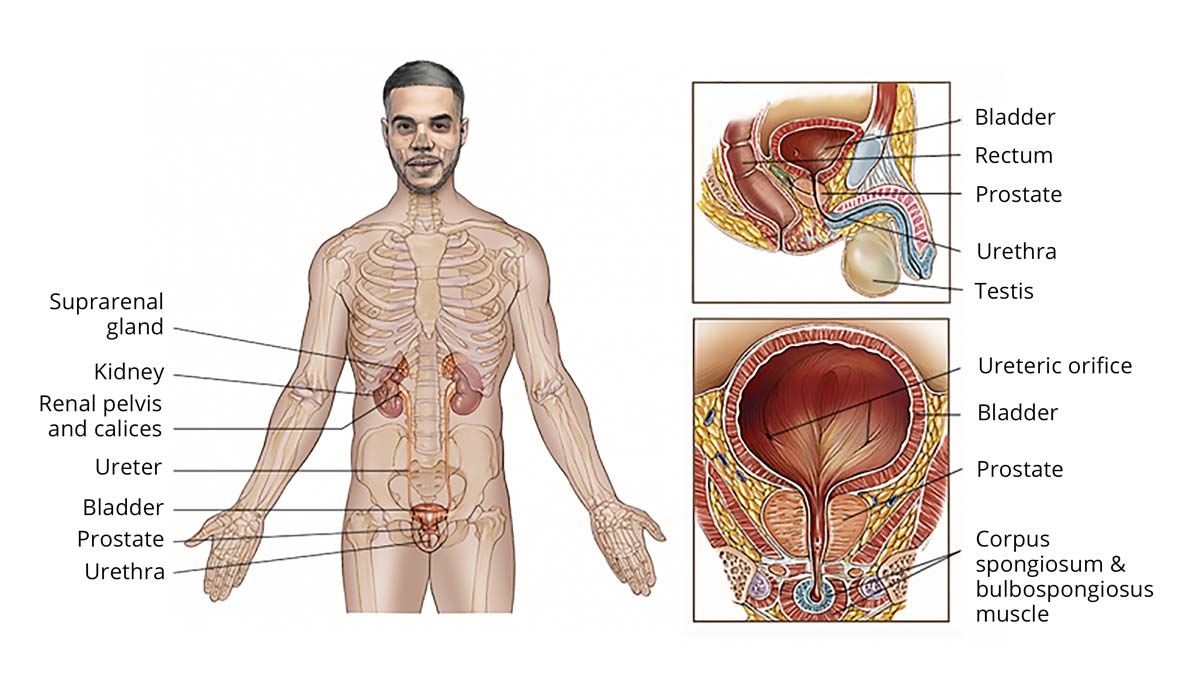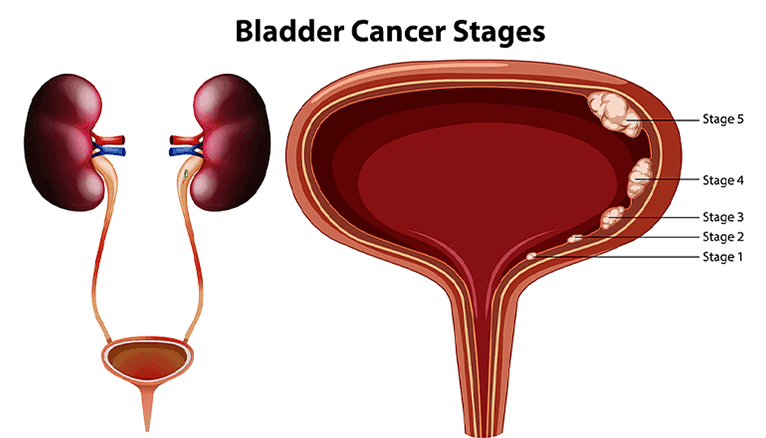The tenacious grip of cancer transcends age and gender, casting a formidable shadow over individuals’ lives. Nevertheless, as men progress in years, the likelihood of encountering specific cancer types notably rises, particularly beyond the age of 40. This piece aims to investigate seven cancer varieties that exhibit higher incidence rates in men aged 40 and above, and we will also examine proactive strategies to diminish the risk of falling victim to these stealthy illnesses.
7 Types of Cancers Affecting Men After 40
Prostate Cancer:
Amid the intricate tapestry of men’s health, prostate cancer often unveils itself in individuals, particularly those surpassing the age of 40. Vigilant screenings, exemplified by the prostate-specific antigen (PSA) test, play a pivotal role in promptly identifying any latent concerns. Nurturing a wholesome dietary regimen abundant in fruits, vegetables, and omega-3 fatty acids, coupled with a steadfast commitment to regular physical activity, has been correlated with a notable reduction in the likelihood of prostate cancer onset.

Colorectal Cancer:
Males who are 40 years old and older encounter a significant susceptibility to colorectal cancer. Vital precautionary measures involve adopting a diet rich in fiber, maintaining a generous consumption of fruits and vegetables, and adhering to routine screenings such as colonoscopies. Implementing lifestyle changes, like quitting smoking and moderating alcohol intake, additionally contributes to reducing the linked risk.
Lung Cancer:
Navigating the intricate landscape of lung cancer risks, smoking stands unwaveringly atop the list, its ominous shadow growing more pronounced as one traverses the journey of aging; an earnest counsel echoes for those surpassing 40, particularly the male populace, urging them to accord paramount importance to forsaking tobacco as an indispensable stride in diminishing the chances of succumbing to lung malignancy. Championing the significance of fortifying defenses against environmental contaminants and urging for consistent assessments of respiratory well-being emerges as pivotal initiatives in strengthening resilience against this formidable health challenge.
Bladder Cancer:
Bladder cancer often manifests more frequently in older men, with significant risk factors encompassing both smoking and contact with certain industrial chemicals. Minimizing the likelihood of bladder cancer entails ensuring sufficient hydration by increasing water consumption, abstaining from tobacco, and employing protective gear in occupational settings where exposure to carcinogens is conceivable.

Testicular Cancer:
While testicular cancer is relatively rare compared to other types, it primarily affects younger and middle-aged men. Regular self-examinations can aid in early detection. Men over 40 should be aware of any unusual lumps or changes and promptly consult a healthcare professional. Testicular cancer is highly treatable when identified early.
Pancreatic Cancer:
The likelihood of developing pancreatic cancer rises with age, prompting men aged 40 and above to focus on lifestyle decisions for risk reduction. Sustaining a balanced weight, participating in consistent physical activity, and refraining from excessive alcohol intake can aid in diminishing the chances of pancreatic cancer onset.
Skin Cancer:
In the symphony of existence, the melody of resilience harmonizes with the cadence of challenges, orchestrating a unique journey where fortitude becomes the key that unlocks the door to triumph. Steering clear of tanning beds and donning safeguarding attire further fortify the bulwark against potential harm.
Reducing Cancer Risk: Lifestyle Modifications:
Healthy Diet:
Adopting a well-balanced, nutrient-rich diet can contribute to overall health and reduce the risk of various cancers. Emphasize fruits, vegetables, whole grains, and lean proteins while minimizing processed foods and saturated fats.
Regular Exercise:
Engaging in regular physical activity not only helps maintain a healthy weight but also has independent cancer-preventing benefits. Aim for at least 150 minutes of moderate-intensity exercise per week.

Tobacco Cessation:
Quitting smoking and avoiding tobacco products are paramount in reducing the risk of lung, bladder, and several other cancers. Seek professional assistance if needed to overcome nicotine addiction.
Moderate Alcohol Consumption:
Limiting alcohol intake to moderate levels is essential for reducing the risk of various cancers, including those affecting the digestive system and liver.
Regular Health Check-ups:
Conducting proactive health evaluations and screenings, following medical recommendations, play a crucial role in promptly identifying cancer, leading to early intervention and effective management of potential health issues.
Sun Protection:
Implementing a holistic approach to minimize the likelihood of skin cancer involves consistently applying sunscreen, donning protective attire, and restricting prolonged contact with detrimental UV radiation.
Stress Management:
Continual stress has been linked to an increased susceptibility to certain cancer vulnerabilities; adopting stress-relieving activities such as mindfulness meditation, yoga, or therapeutic counselling can substantially elevate one’s holistic sense of health.
Conclusion:
As one navigates the journey of aging, the rising concern of cancer gains prominence, accentuating the imperative for proactive measures. Grasping the prevalent types of cancers affecting individuals beyond the age of 40 is vital, and embracing a proactive stance entails making lifestyle modifications to markedly diminish the risk. Consistent screenings, embracing a wholesome diet, and steering clear of recognized risk factors constitute integral facets of a holistic strategy dedicated to fostering enduring health and overall well-being. Consistent screenings, embracing a nourishing diet, and steering clear of established risk factors form integral elements of a holistic strategy dedicated to fostering enduring health and overall well-being. By giving precedence to these measures, individuals can equip themselves to confront cancer, fostering a path towards a healthier and cancer-free future.
Read More:- Unlocking Radiance: Unveiling the Top Face Care Tips You Need to Know
Read More:- The Benefits of Care Advantage Health Insurance
